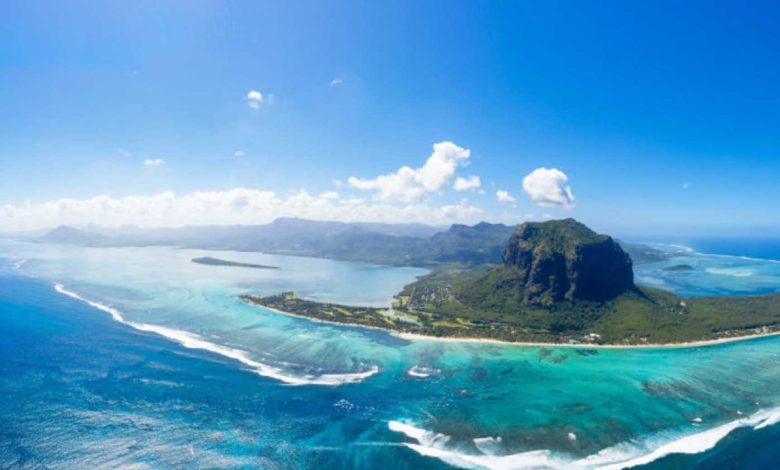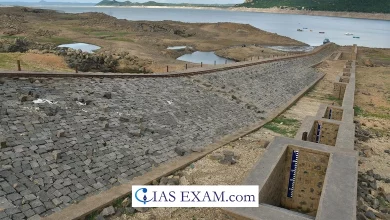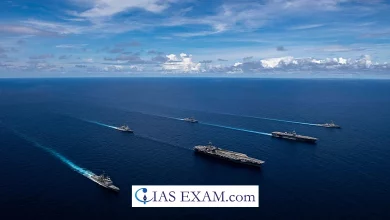India’s Blue Economy – Opportunity through G20 Presidency
[GS Paper 3 - Indian Economy, Inclusive Growth]

Context – The potential of the oceans for the sustainable development of the blue economy is immense and the initiatives taken by the Government of India towards achieving it demonstrate India’s commitment to building a sustainable future for its marine resources and the global community. India’s G20 presidency provides an opportunity to promote collective action for the transition.
About Blue Economy
- As per definition given by the World Bank, Blue Economy can be termed as the sustainable use of ocean resources for economic growth, improved livelihoods, and jobs while preserving the health of the ecosystem.
- Gunter Pauli’s book, “The Blue Economy: 10 years, 100 innovations, 100 million jobs” (2010) brought the Blue Economy concept into prominence.
- The UN first introduced “blue economy” at a conference in 2012 and underlined sustainable management, based on the argument that marine ecosystems are more productive when they are healthy. In fact, the UN notes that the Blue Economy is exactly what is needed to implement SDG 14, Life Below Water.
- The term ‘blue economy’ includes not only ocean-dependent economic development but also inclusive social development and environmental and ecological security.
Potential of the Oceans
- The oceans offer vast opportunities for the prosperity of our planet, with 45% of the world’s coastlines and over 21% of the exclusive economic zones located in G20 countries.
- They are reservoirs of global biodiversity, critical regulators of the global weather and climate, and support the economic well-being of billions of people in coastal areas.
Opportunity presented by India’s G20 Presidency
- Main Priority: India’s G20 presidency has prioritized the blue economy as a key area under the Environment and Climate Sustainability Working Group.
- Promote Sustainable and Equitable Development: The aim is to promote the adoption of high-level principles for sustainable and equitable economic development through the ocean and its resources while addressing climate change and other environmental challenges.
- Guide for future G20 presidencies: India’s commitment to prioritizing oceans and the blue economy under its presidency would ensure continued discussions on this crucial subject and pave the way for future G20 presidencies.
- Communication and Collaboration: Effective and efficient ocean and blue economy governance presents a significant challenge, and India’s G20 presidency can build an effective communication with all stakeholders to share best practices, foster collaborations for advancements in science and technology, promote public-private partnerships, and create novel blue finance mechanisms.
Issues and Responsibility
- Ambitious efforts by countries to expand their blue economies are threatened by intensifying extreme weather events, ocean acidification, and sea-level rise.
- Marine pollution, over-extraction of resources, and unplanned urbanization also pose significant threats to the ocean, coastal and marine ecosystems, and biodiversity.
- The inherent inter-connectedness of oceans implies that activities occurring in one part of the world could have ripple effects across the globe.
- Therefore, the responsibility of their protection, conservation, and sustainable utilization lies with all nations.
Conclusion
India’s G20 presidency offers an opportunity to promote individual and collective actions towards a sustainable blue economy. The stewardship of oceans is an investment that will sustain future generations, and the global community must unite for the well-being of our ocean commons.





.png)



